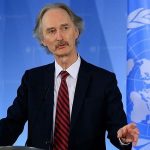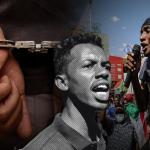Despite the Emir’s call for unity, Kuwait’s political turmoil is certain to persist


Kuwaiti political specialists hailed the emir’s words as a calculated move within the realm of possibility. The emir’s speech demonstrated once again that the political authority is under pressure to de-escalate tensions with parliament and accept the current situation, which has resulted in the demise of several governments and left the country without a public budget law, which is required to push through much-needed social and economic reforms.
The emir’s words, according to the same analysts, were also an acknowledgement of the situation, with the Kuwaiti monarch emphasizing the importance of patience and solidarity. “You are aware that reform is a process with phases and roads, and that it does not occur suddenly. “Great effort, patience, solidarity, and cohesion from a loyal and authentic people will still be required,” the emir said.
Related Posts
Experts feel that the emir’s gamble on moral and religious devotion to win over parliament’s support may fall short of its objectives, especially given the existence of complicated personal, political, and tribal agendas that might reshuffle cards at any time. The experts went on to say that qualitative changes, such as a popular vote, were needed to reform the way parliament works and limit its members’ authority.
On Monday, Kuwait’s emir emphasized the necessity of national unity in preserving the country and confronting problems, emphasizing the need of cohesiveness among Kuwaitis in achieving change. “Your solidarity and noble spirit are the most potent weapon to protect our beautiful motherland,” he said in his speech, given on his behalf by Crown Prince Sheikh Mishaal al-Ahmad al Sabah and carried on state television. He went on to say that national unity serves as a barrier between Kuwaitis and their country, as well as a “fortress against misfortune and obstacles.”
“In light of our genuine democratic approach, our sound constitution, and our ancient customs and norms, we will spare no effort to protect the capabilities and gains of our beloved homeland, and we will not hesitate to make any decision that ensures the country’s security and stability,” the emir concluded. Kuwait is the only Gulf Arab country with a fully elected parliament with broad legislative powers and the ability to remove ministers from office.
Kuwait’s administration handed in its resignation to Crown Prince Sheikh Mishaal al-Ahmad al-Jaber al-Sabah earlier this month, but the country’s emir will have the last word. The government’s decision came a day before a legislative vote on a letter of non-cooperation issued by ten legislators, accusing the premier of “unconstitutional” acts, including corruption.
The resignation of the government later placed parliament on pause, with Speaker Marzouq al-Ghanim claiming that the resignation had put the legislature on hold for the emir’s consent. He also stated that the government will not attend parliament until the issue is handled. Parliament will only be permitted to reopen under the supervision of a “caretaker administration led by Prime Minister Sheikh Sabah al-Khaled al-Hamad al-Sabah,” according to Ghanim.
Kuwait’s oil-rich economy has been shattered for more than a decade by disagreements between legislators and successive administrations headed by the ruling Al-Sabah family, with parliaments and cabinets disbanding many times. In February, the country’s interior and defense ministries resigned in protest at how other ministers were questioned in parliament. Foreign Minister Sheikh Ahmed Nasser al-Mohammed al-Sabah, who is also a member of the royal family, was questioned by Parliament on allegations of corruption and misappropriation of public funds.
On February 16, Sheikh Ahmed survived a vote of no confidence, although Defense Minister Sheikh Hamad Jaber al-Ali al-Sabah called the protracted questioning a “abuse” of authority. “Interrogations are a fundamental right… but parliamentary procedures are preventing us from meeting the ambitions of the Kuwaiti people,” he said at the time, according to Kuwaiti media. After its predecessor resigned in November amid political gridlock, the country’s most recent administration, the fourth in two years, was sworn in in December.









